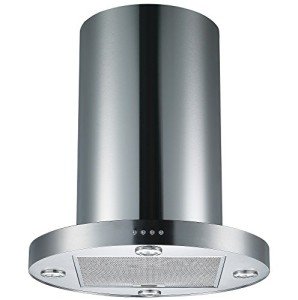10 Great Books On Island Extractor Hood
페이지 정보

본문
Understanding Island Extractor Hoods: A Comprehensive Guide
In modern-day cooking areas, the role of an extractor hood, especially the island extractor hood, can not be overemphasized. These appliances not just boost the visual appeals of a kitchen however likewise play a crucial function in maintaining air quality. In this short article, we will explore what island extractors are, their benefits, types, setup considerations, upkeep suggestions, and answer some often asked concerns to aid home cooks and house owners in making informed decisions.
What is an Island Extractor Hood?
An island extractor hood, likewise called an island range hood, is a kind of ventilation system that is suspended above a kitchen island cooktop, where cooking occurs. Unlike traditional wall-mounted hoods, which are affixed to walls, island hoods hang from the ceiling, supplying unblocked views and guaranteeing effective ventilation for all kinds of cooking activities.

Advantages of Island Extractor Hoods
Island extractor hoods provide a plethora of advantages:
- Enhanced Air Quality: They successfully remove smoke, steam, and cooking smells, promoting a healthier kitchen environment.
- Aesthetic Appeal: Available in various designs and finishes, island hoods can function as a sensational focal point in open-concept kitchens.
- Flexibility: Many models come with versatile ventilation choices, dealing with both ducted and ductless configurations.
- Sound Reduction: Advanced innovation in modern-day extractor hoods often minimizes functional noise, permitting an enjoyable cooking experience.
- Lighting: Many island hoods are equipped with integrated lights that light up the cooking location, boosting presence during meal preparation.
Types of Island Extractor Hoods
When choosing an island extractor hood, you will encounter numerous types. Here's a brief overview:
| Type | Description |
|---|---|
| Ducted | Ventilation system that needs ductwork to direct air outside the house. |
| Ductless | Uses filters to clean the air before recirculating it back into the kitchen; ideal for homes. |
| Convertible | Can operate as both ducted and ductless, supplying versatility based on the kitchen island extractor fan layout. |
| Integrated | Developed directly into kitchen cabinetry or lighting, offering a smooth, inconspicuous style. |
| Wall-mounted | Although not traditional island hoods, some wall-mounted hoods can be set up in such a way that serves kitchen islands. |
Installation Considerations
When setting up an island ventilation hoods extractor hood, Island extractor hoods there are numerous important aspects to consider:
- Height: The hood ought to be set up at a height of 28 to 30 inches above the cooktop to efficiently catch smoke and smells.
- Ventilation: Ensure appropriate ducting is offered if selecting a ducted model, specifically in homes with intricate layouts.
- Airflow Capacity: Choose a hood with adequate CFM (cubic feet per minute) rating to suit the cooking appliance. As a guideline of thumb, multiply the BTUs of your cooktop by 1.5 to figure out the required CFM.
- Power Supply: Verify that electrical circuitry satisfies the hood's functional requirements. Seek advice from a service technician if modification is required.
Upkeep Tips for Island Extractor Hoods
Appropriate upkeep makes sure the durability and effectiveness of your island extractor hood. Follow these pointers:
- Regular Cleaning: Clean the exterior surface areas and the grease filters monthly. A lot of filters can be cleaned in warm, soapy water.
- Inspect Light Fixtures: Inspect and change bulbs as required to ensure the cooking area is well-lit.
- Check for Duct Blockages: If utilizing a ducted system, periodically check ducts for obstructions to guarantee optimal air flow.
- Display Noise Levels: If your hood starts to make uncommon noises, look for loose parts or particles within the system.
- Schedule Professional Maintenance: Consider having an expert inspect and service your cooker hood for island every year to resolve any prospective problems.
Frequently asked questions
What is the perfect CFM for an island extractor hood?
The ideal CFM depends on your cooktop's BTU. For a lot of home cooking, a variety of 600 to 1200 CFM is recommended, depending upon the intensity of your cooking routines.
Can I install an island extractor hood myself?
While DIY installation is possible for those with experience, having an expert install your island hood is suggested to ensure optimal performance and safety.
Are ductless island extractor hoods reliable?
Ductless hoods can be reliable in eliminating smoke and smells when geared up with high-quality filters, however they might not be as effective as ducted versions in aerating hot air.
How typically should I change the filters?
For ductless designs, it is suggested to replace the filters every 6 months to a year, depending upon usage. Constantly describe the manufacturer's guidelines for specifics.
island cooker hoods 60cm extractor hoods (mouse click the next page) elevate both the functionality and aesthetic appeal of contemporary cooking areas. With different types, installation choices, and maintenance ideas, homeowners can find the best option to fit their cooking needs and design preferences. By buying a quality island vent hood extractor hood, one not only enhances their cooking environment however also promotes a healthier home. As you browse alternatives, remember to consider your kitchen design and cooking routines to select a hood that perfectly fits your cooking lifestyle.
- 이전글20 Great Tweets From All Time Concerning Adult ADHD Testing 25.05.19
- 다음글See What Built In Combi Microwave Tricks The Celebs Are Using 25.05.19
댓글목록
등록된 댓글이 없습니다.



